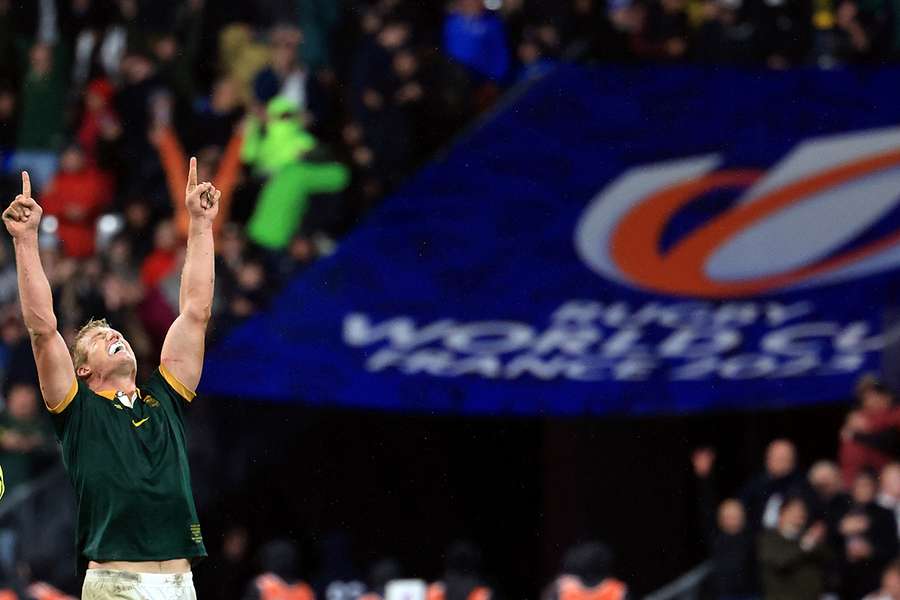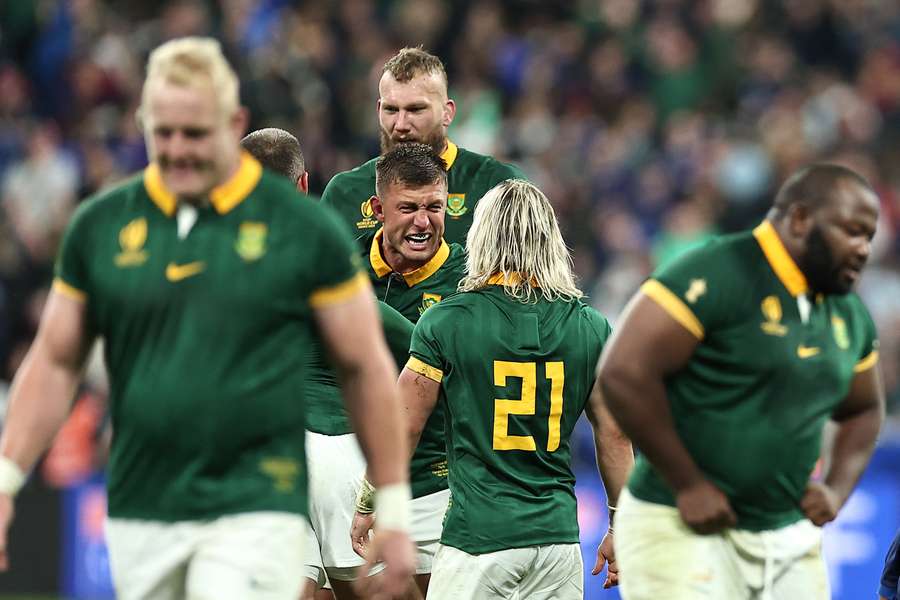All Blacks and Springboks primed for physical World Cup final for the ages

The rivalry between the All Blacks and the Springboks is one of the most competitive and intense in the sport, with both sides targeting a record-breaking fourth World Cup crown.
The pair share a long and storied history, although their only previous meeting in rugby’s biggest match came in 1995 when the Boks secured an iconic first title on home soil.
Another chapter in the passionate rivalry is set to be written at the Stade de France on Saturday evening, and with both teams battle-hardened after a tough route to the final, the stage is set for an all-time classic.
Relentless All Blacks’ defence
It’s no coincidence that two of the world’s best defences will line up against one another in Saturday’s showpiece event. From ferocious work at the breakdown to consistent excellence in the scrum and line-out, both New Zealand and South Africa have withstood a barrage of pressure from the likes of France, Ireland, England and Argentina to make it through to the final.
The Pumas threw everything at the All Blacks in the early stages of the semi-final, with five entries into the New Zealand 22 during a fiercely competitive opening 25 minutes.
However, for all their pressure and territory, Argentina’s reward was a measly three points from the boot of Emiliano Boffelli as New Zealand produced a masterclass in defensive discipline and resilience.
While there’s no denying Argentina could’ve been more clinical and decisive at certain points in the first half, the All Blacks’ ability to absorb pressure and choose the perfect moment to counterpunch was a sight to behold.
They might be renowned for their eye-catching brand of attacking rugby, but Ian Foster’s men demonstrated a different but equally impressive side of their game against the Pumas - showing complete trust in both their tackling technique and superior fitness levels to outmuscle and outclass a dogged outfit.
Ardie Savea once again typified everything good about the All Blacks, with the influential number eight rising to the top of his team’s charts in both steals and arrivals through the tournament.
Not only did New Zealand suffocate Argentina at the breakdown, but they also transitioned from defence to attack in the blink of an eye, giving the Pumas next to no time to recover and get back into shape.
Foster’s side needed no second invitation against an unbalanced Argentine defensive line, and in typical All Blacks fashion, the speed and efficiency of their offensive play was devastating when it mattered most.
Unsurprisingly, New Zealand have named an almost identical side for the final, with Sam Whitelock making way for Brodie Retallick in the All Blacks’ only change as they look to continue their momentum.
Forwards key for Springboks
As for the Springboks, their defensive discipline might not have been at its best against England in the last four, but it has been rock-solid throughout the tournament against some of the world’s top teams.
The Boks’ work around the breakdown is a threat to any side, in particular their expertly timed counter-rucking which was crucial in disrupting the rhythm of Antoine Dupont in the second half of their quarter-final with France. It wouldn’t be a surprise to see South Africa adopt a similar approach against the All Blacks to try and limit the influence of scrum-half Aaron Smith.
However, with the likes of Kwagga Smith and Dean Fourie providing plenty of old-school scavenging at the breakdown and the monstrous physicality of Eben Etzebeth, Pieter-Steph du Toit and Duane Vermeulen, the Springboks’ threat on the ground is both multifaceted and extremely difficult to stop.
Another string to South Africa’s bow is their well-drilled blitz defence which has been key to rushing the opposition and driving back attacks. Unfortunately for the Boks, the one team that’s shown they can unlock their rush defence is New Zealand.
With Richie Mo’unga, Jordie Barrett, Will Jordan and Beauden Barrett all on the pitch, the All Blacks can rotate their ball-handler and utilise a varied kicking game to help bypass South Africa’s relentless line speed.

The return of experienced half-back duo Faf de Klerk and Handre Pollard to the starting line-up suggests that Jacques Nienaber’s side are looking to counter the attacking prowess of New Zealand with the kind of traditional, hard-nosed rugby that took them to the title four years ago.
Furthermore, the bold decision to opt for a 7-1 split on the bench - leaving out both Cobus Reinach and Manie Libbok from the squad - highlights the importance of South Africa’s world-class pack of forwards as they look to put the hammer down in the scrum.
Last hurrah for elder statesmen
A slew of rugby greats will be making their final international appearance on Saturday in the jerseys they’ve worn with enormous distinction over the years.
For New Zealand, Whitelock - the highest-capped player in All Blacks’ history - will be taking to the field for the final time, aiming to become the first-ever man to win three World Cups.
Alongside Whitelock, long-time partner in crime Retallick is also set to retire after the tournament, while consummate scrum-half Smith joins the second-row duo in the last-chance saloon.
As for South Africa, each member of their starting pack is aged 30 or older, and with reserve hooker Fourie having recently turned 37 and Willie le Roux 34, it seems highly likely that it’ll be the last dance for many a Springbok, too.
Can the old timers roll back the years and give their nation one final moment to remember? It promises to be a monumental clash either way.
